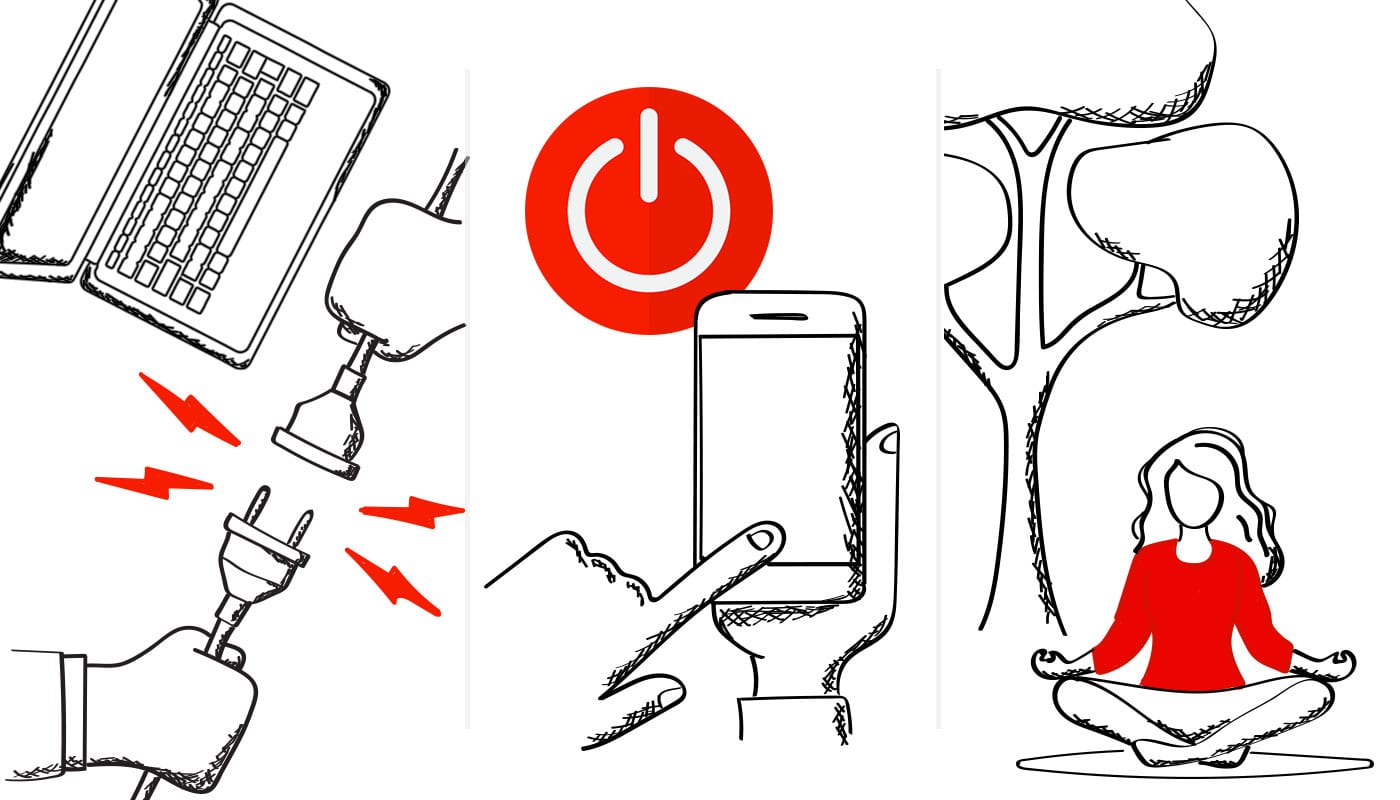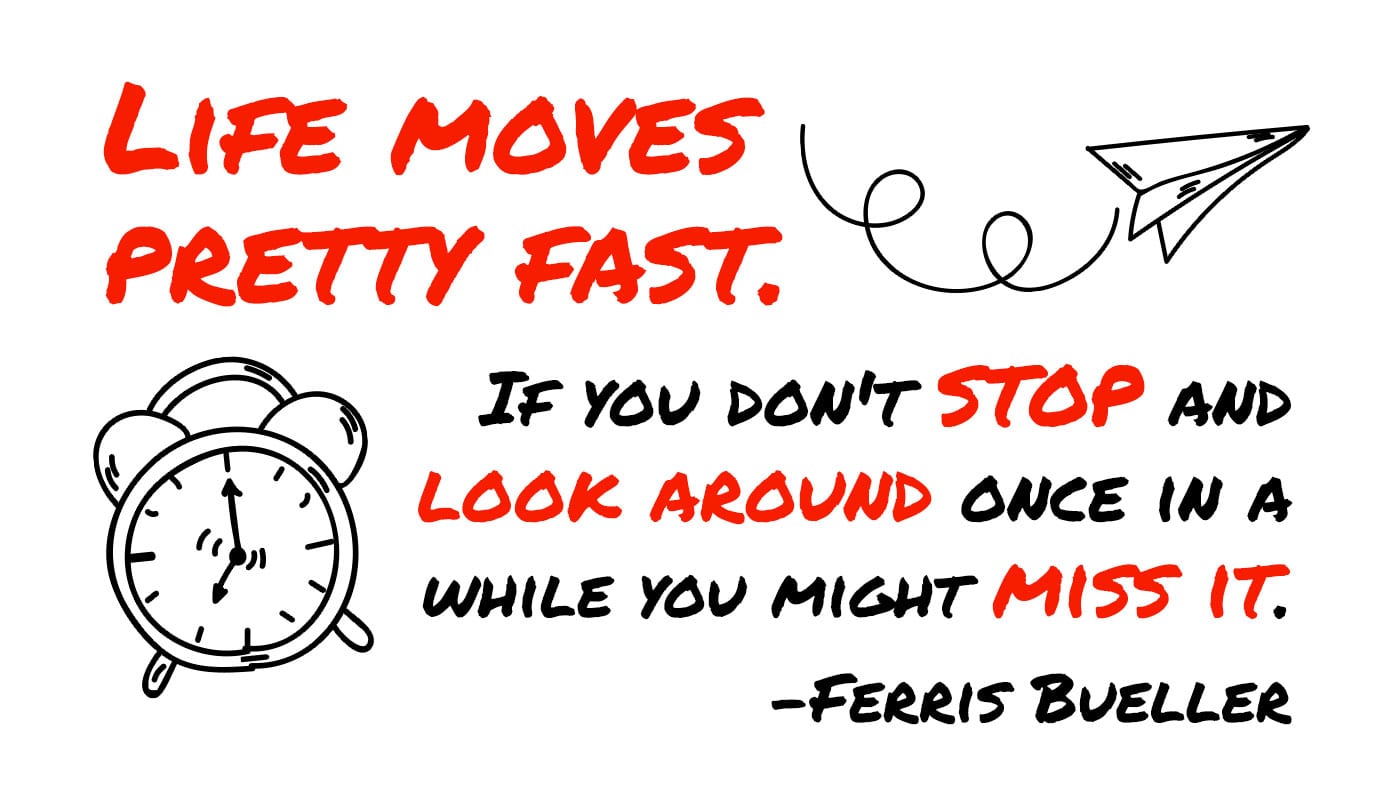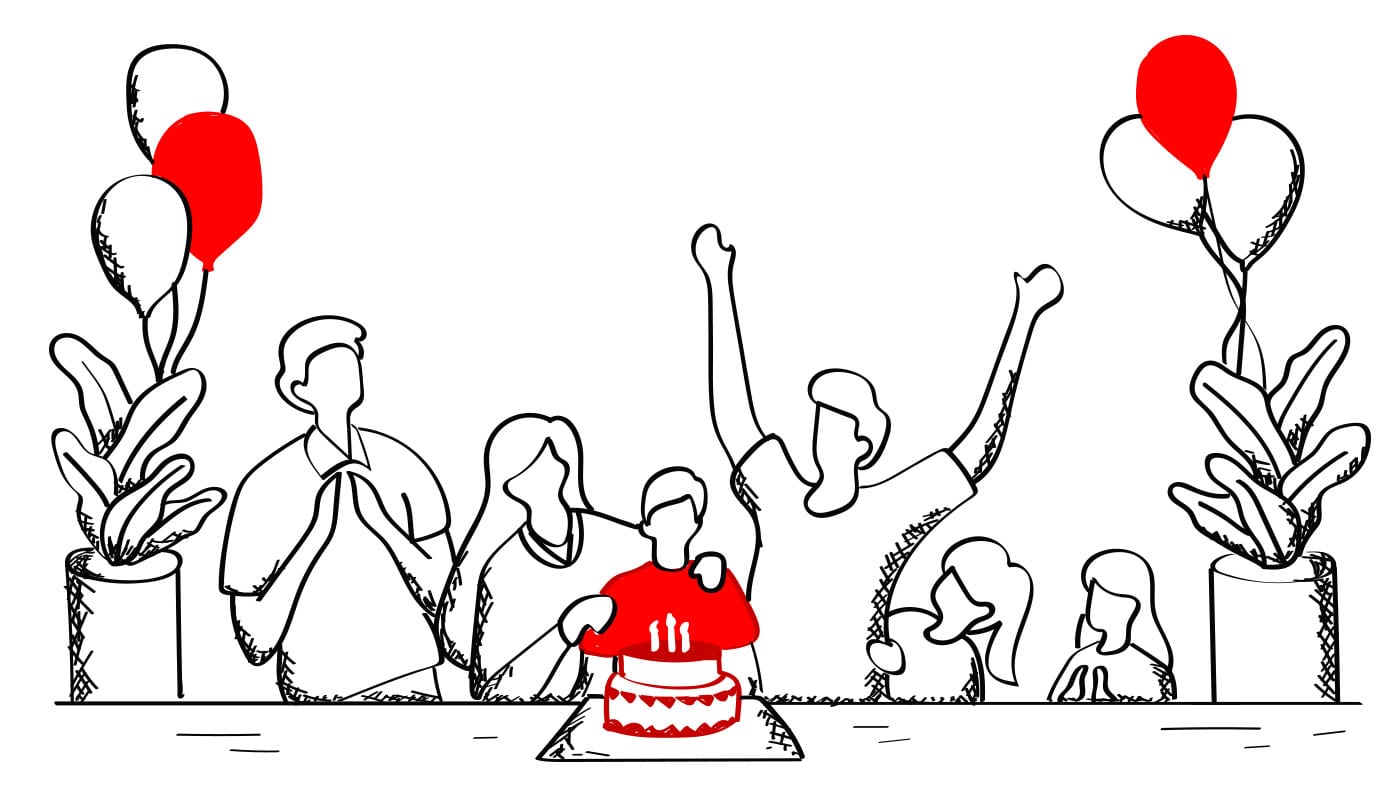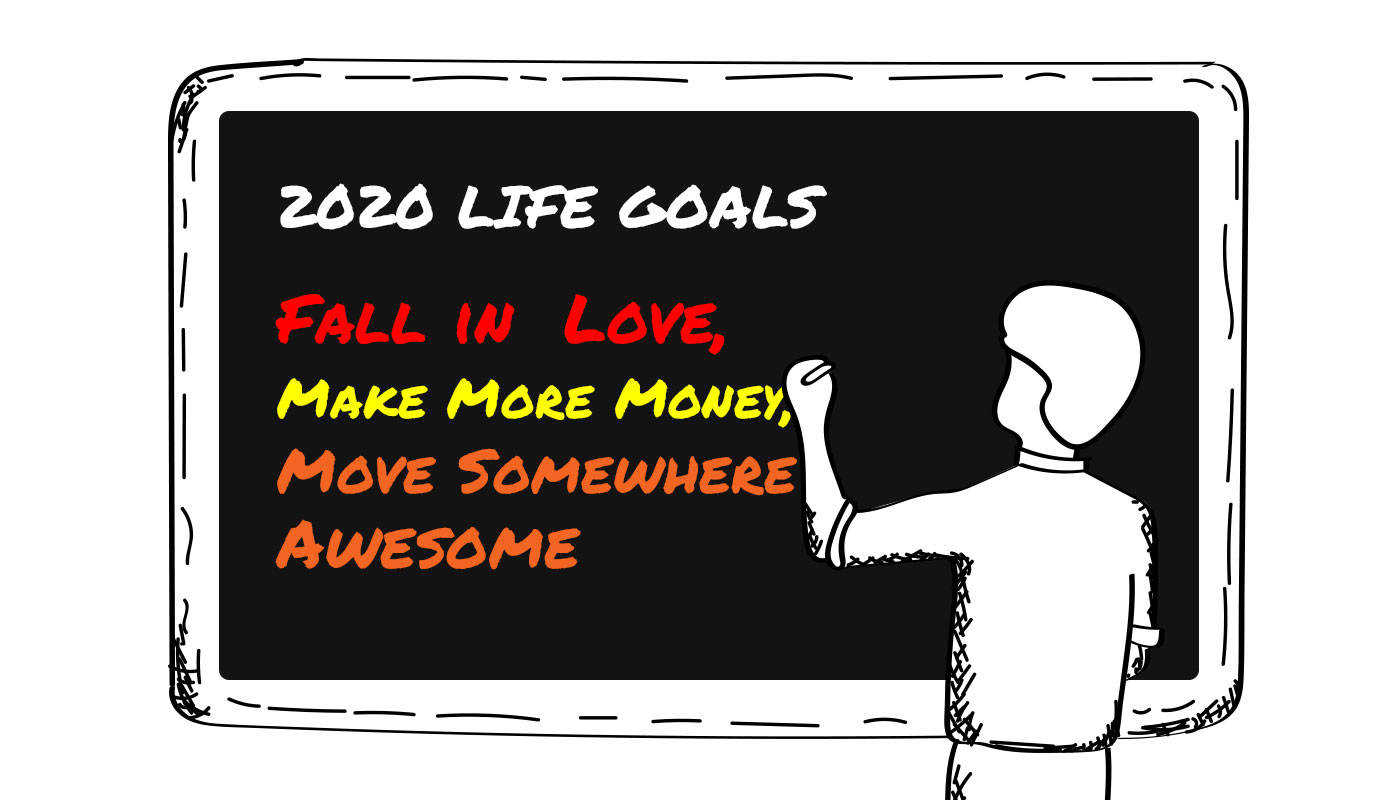We’re two months away from the end of the year. It won’t be long before you’re looking back at this year, making plans, and setting goals for the new one. But 96 percent of personal development efforts fail. Setting goals and making resolutions might feel good. But it doesn’t lead to anything if you don’t do it right. This is why it’s worth conducting an annual review.
Rather than waiting until you wake up with a hangover on New Year’s Day, do something today you’ll be glad you did a year from now. One of the best ways to do this is to conduct an annual review. You might just accomplish all your personal and professional goals or this could be the most prosperous year of your life.
CONDUCTING YOUR ANNUAL REVIEW
Waiting until New Year’s Day to conduct an annual review and set goals for the new one might be a familiar behavior. Your subconscious won’t take you seriously. it will seem like mental masturbation because you’ve done this before. The smallest change can be a big difference. And the easiest of those changes is to conduct an annual review earlier than planned.
THE FIRST STEP IN CONDUCTING AN ANNUAL REVIEW

Brian Scudamore says that successful people spend 10 hours a week just thinking. When you’re drowning in a sea of noise, it’s hard to hear your own voice. You get caught up in the ego-driven pursuit of a life that looks good on the internet. You let some internet-famous person determine your values and priorities. Before you even begin this process, I recommend you unplug.
- Quit social media for a week.
- Delete distracting apps from your phone.
- Set up an auto-responder on your email.
If Digital Minimalism or any of the above feels too extreme, try Tiffany Shlain’s suggestion of a tech shabat. Pick one 24-hour period where you’re tech-free. The point is to reduce the number of things competing for your attention.
CANCEL MEETINGS
Every year, Bill Gates goes off to a cabin in the woods with a pile of books. He unplugs from the rest of the world and uses the time to read and reflect.
I had one week before Thanksgiving to snowboard as much as possible. So I decided to cancel all my meetings, order a bunch of books, and make it my think week. This was great for conducting an annual review.
If you can, clear your calendar. Try to have a few days of no meetings with other people. You don’t want anyone else influencing your thinking during this period, consciously or subconsciously. While a whole week isn’t always possible, you could just have think hours set aside at the end of each day.
GO ANALOG
There’s a lot of power to going analog in an increasingly digital world. Analog is distraction-free by default. It’s a great way to reduce the background hum of anxiety that comes from endless notifications.
- Read physical books. Avoid reading articles on the internet. And avoid using screens.
- Write in a notebook.
As Ryan Holiday says, “Stillness is The Key.” And one way to add more stillness to your life is by going analog.
CONDUCT A POST-MORTEM
A post-mortem is something you should do after every project and every year. There are always things that don’t go according to plan or turn out how you hoped. The point of this isn’t to wallow in your misery and dwell on your failures. It’s an opportunity to learn what went wrong and prevent history from repeating itself.
WHAT WENT WELL

Between social media, cell phones, and the internet, the world moves faster than it ever has before. When you’re goal-oriented, it’s easy to be so focused on the future that you overlook your highlights from the last year. I almost did that in the process of writing this post.
MY SISTER’S WEDDING
Without a doubt, the highlight of my year was my sister’s wedding. It brought us all closer together. My family grew in size. The photos below are some of my personal favorites from the wedding:



WRITING
I didn’t have a book deal for a third book after finishing An Audience of One. But I wasn’t going to let that stop me from creating what I wanted to see exist in the world. I finished two writing projects that I had a blast working on:
- The Scenic Route: What I’ve learned from a Life That Hasn’t Turned Out The Way Thought It Would
- Make More Art: A No-Bullshit Guide to Becoming a Prolific Creator
It’s important to stay connected to why you started doing something in the first place. And I wasn’t going to stop writing every day just because I didn’t have a book deal with a publisher.
VENTURE CAPITAL
10 years ago, I could never imagine being the founder of a venture-funded media company. If you told me that, I would have thought you were out of your mind.
Earlier this summer, RadioPublic launched Podfund, a venture fund to invest in podcasts. And Unmistakable Creative was one of their first seed investments. Given our mission to inspire, educate and entertain a million people, it’s one of the best decisions we’ve ever made.
THE LISTENER TRIBE
One of our first orders of business, when we raised our funding, was to hire a community manager and build a listener referral program. But we got a lot more than that. We got an amazing community manager, Milena Rangelov. If you haven’t joined our Mighty Network yet, you’ll get access to exclusive content that we don’t publish elsewhere.
SPEAKING GIGS
Speaking is one of my favorite ways to spread the message of my work. There’s a life-changing magic to meeting people in person. I did 8 paid speaking engagements this year and spoke with media companies, professional associations and a wide variety of people.
WHAT DIDN’T GO WELL
Even though it was last year, the book launch of An Audience Of One: Reclaiming Creativity for Its Own Sake wasn’t a huge success. So I thought it was a good example for this post.
DON’T CHANGE SYSTEMS IN THE MIDDLE OF A BIG PROJECT
The worst idea I had during the book launch was to switch email providers. Our open rates went down. Readers found the formatting difficult to read, and I wasted time on software implementation, which I could have spent marketing my book.
SURRENDER AND EXPECT NOTHING
Midway through the launch, I was beyond depressed. I felt like my career was over. When I was upset over the book sales, my sister said, “You don’t even believe what you wrote. Why would anybody buy it?” That led me to see that the pursuit of happiness through external means was a recipe for suffering. It taught me to surrender and realize that when you expect nothing, everything comes to you.
SOMETIMES HARD WORK ISN’T ENOUGH
This year, I spent about 3-5 months working on a book proposal to do a third book with a publisher. But no matter how many revisions I did, I couldn’t get it to the point where my agent thought she could sell it. So I decided to table it for a while and come back to it sometime later.
In every project, there are tactical lessons and psychological ones.
- Make a list of all the projects you worked on this year.
- Describe the outcome you desired.
- Described the outcome you had.
- Write down what you could have done differently to bridge the gap.
You can apply this framework for projects, people you hired, or even personal situations.
WHAT DID I LEARN?

OUR TIME WITH PEOPLE WE CARE ABOUT IS PRECIOUS
In the months leading up to my sister’s wedding, I spent a lot of time with my family. And I was happier than I’d ever been. Nothing is more precious than the time we have left with the people who matter most to us.
A PERSON’S ACTIONS OVER TIME REVEAL TRUE CHARACTER
Social media takes up way too much of our time, attention, and energy. When I quit social media for 30 days, I was happier, more productive, and less anxious. Try it for yourself and see what happens.
Social media amplifies our first impressions of people. But we shouldn’t judge anyone based on first impressions.
CREATE FOR AN AUDIENCE OF ONE
Writing a book with a publisher comes with pressure and expectation, even if it’s a book about creativity for its own sake. My writing projects form this year taught me how to start living and breathing the very things I wrote about in An Audience of One.
I shared them with my audience, but I wrote them for myself. What you create for An Audience of One is much more likely to reach an audience of millions. And even if it doesn’t, as Neil Gaiman says, “at least, you have the work.”
YOU BUILD A TOLERANCE FOR DISAPPOINTMENT BY EXPERIENCING IT
When I went off the deep end after a bad break up in 2014, my mentor, Greg, didn’t coddle me. He was tough as hell on me. He called me out for acting like a teenager. I didn’t realize it, but he was preparing me for higher stakes situations. After a disappointing experience in my personal life, one of my friends said, “A year ago this would have derailed you for weeks.” I said, “I don’t have that luxury. We have an investor’s money. Our job is to multiply it and focus on building something incredible.”
PEOPLE MATTER MORE THAN THE BACKDROP
My 40th birthday was anti-climactic and disappointing. My mom asked what I wanted to do for my 41st. I told her, “Spend it with you, my sister and brother-in-law, and some close friends at home.” It was the best birthday ever because I got to spend it with the most important people in my life.
SOMETIMES YOU NEED TO CHANGE YOUR ENVIRONMENT TO CHANGE YOUR LIFE
After living in San Diego for 3 years, I wasn’t very happy. Some of my best friends lived in Colorado. So I decided to move and even in the month that I’ve been here, I’ve been much happier.
LIVE AN EXTRAORDINARY LIFE REGARDLESS OF YOUR CIRCUMSTANCES
I never thought I’d be 40 and single or my sister would get married before I did. I didn’t think I’d be at her wedding without a date. But Jenny Taitz, the author of How to Be Single and Happy taught me that shouldn’t keep me from living an extraordinary life. So I filled my year with perfect waves, days on the mountain; and long, slow dinners with amazing people.
SETTING GOALS FOR 2020
UNDERSTAND THE ESSENCE OF YOUR GOALS
So often, we set arbitrary goals like earn six figures or earn a million dollars. They sound good on paper or impress other people.
Rather than starting with an income goal, make a list of everything you’ll spend your money on.
- Include your basic necessities like food, shelter, and transportation.
- Add credit card bills and any outstanding debt.
- Then, add on everything that you know brings you joy.
I know that beyond my basic necessities, two things that are important to me are snowboarding and surfing. So every year, I have funds set aside for this. It’s what Manisha Thakor refers to as joy-based spending.
One of my favorite apps is Digit. It allows you to automatically save for purchases by taking small amounts out of your bank account. As you’ll see below, I’m saving for a ski pass and some other things. You might see the wedding ring and think I’m putting the cart before the horse, but I’d rather be prepared for when it does.
Going through this process, you might discover that you don’t need as much as you think to have everything you ever wanted. When I added up my numbers, l was stunned by how much lower it was than I thought it would be.
SET ACHIEVABLE PROCESS-FOCUSED GOALS
You’re probably not going to be the next Steve Jobs, Oprah, or Beyonce. Despite what reading articles on the internet might tell you, that’s ok. When you don’t understand the essence of your goals, you set arbitrary goals that you think will make you happy. And so often we set our goals based on societal expectations instead of our own values.
Trying to control what’s uncontrollable is a recipe for madness instead of meaning. Yet, people are always setting outcome-based goals that are out of their control. One thing you learn from doing creative work for a living is that outcomes are out of your control. The process is not.
Process orientation allows you to focus on what you control. When you set process-based goals, you experience visible progress, which increases your motivation. Outcome-based goals cause you to think you’re not making any progress until you achieve your outcome, which decreases your motivation.
As a writer, I could set one of two goals:
- Write 1000 words a day for 7 days a week (Process-Based)
- Hit the New York Times Best Sellers List (Outcome-Based)
The irony is that the process-based goal makes the outcome more likely.
USE OKRS FOR YOUR PERSONAL AND PROFESSIONAL LIFE
When you set too many goals, you don’t make much progress. When you put your effort into a handful, you make a ton. That’s why you should limit yourself to about 3-4 goals. One of the most common methods for this is OKRs (Objectives and Key Results).
Objectives and key results are the yin and yang of goal-setting—principle and practice, vision and execution. Objectives are the stuff of inspiration and far horizons. Key results are more earthbound and metrics-driven. They typically include hard number for one or more gauges: revenue growth, active users, quality, safety, market share, customer engagement. – John Doerr, Measure What Matters
For example, I have 4 objectives at the moment:
- Increase sales of our online courses.
- Increase ad revenue from our podcast.
- Increase the number of people in our listener tribe.
The key results might be:
- X amount of revenue per month from course sales.
- Y # of people in our listener tribe.
There are numerous OKR tools on the market, but Range.co has become my go-to. I also can’t recommend John Doerr’s book Measure What Matters highly enough.
SET YOUR GOALS IN A DIFFERENT ENVIRONMENT
There are 9 environments that make up our lives. They have a profound impact on our thinking and behavior. Familiar environments lead to familiar thoughts and behavior.
There’s a reason companies have annual off-sites. By setting your goals in a different environment, you break your old patterns and ways of thinking. You don’t have to meditate at an ashram or join a monastery. Even something as simple a checking into a hotel in your hometown for a weekend will do.
CONDUCT A PRE-MORTEM OR WOOP
A delusional optimist would tell you that considering the worst-case scenario is pessimistic. A rational optimist would tell you that that’s how you prevent it. This why rational optimists are usually successful and delusional optimists keep new age gift stores in business.
Regardless of your goal, there will be obstacles. Rational optimism helps you anticipate them, and make plans for how you’re going to deal with them.
One of the most valuable books I’ve read all year is Rethinking Positive Thinking. We sit around writing down SMART Goals. We make vision boards and fantasize about bridging the gap between who we are and who we want to be. This leads to delusional optimism, which ironically prevents people from accomplishing their goals.
“Merely dreaming about the future makes people less likely to realize their dreams and wishes (as does dwelling on the obstacles in their path). There are multiple reasons why dreaming detached from an awareness of reality doesn’t cut it. The pleasurable act of dreaming seems to let us fulfill our wishes in our minds, sapping your energy to perform the hard work of meeting the challenges in real life. – Gabrielle Oettingine
This isn’t about dwelling on what might go wrong. It’s about anticipating it so you can prevent it. In her book, Oettingen offers a four-step procedure called WOOP- Wish, Outcome, Obstacle, Plan. It lets you have a financial goal of some sort. This is what it would like if you used WOOP:
- Wish: Earn more money
- Outcome: Six figures
- Obstacle: Your current job doesn’t pay enough
- Plan: Find a new job
I’ve oversimplified for the purpose of this post. But I’ve found this exercise to be incredibly valuable in thinking about my goals for next year.
YOU DON’T HAVE TO DO THIS ALONE
The Unmistakable Creative Listeners Tribe is our community in which we:
- Share podcast episodes.
- Discuss big ideas.
- Work together on mastering interesting and useful skills.
Every month, we explore a new theme. This December, our theme is Reflection and Planning. There are 4 weekly topics and a series of questions and actions. We’ll help each other reflect on the lessons of 2019 and plant some solid seeds for 2020.
We’ve not only prepared interactive and effective content for December. You’ll also connect with amazing, creative people and get accountability in 2020 to keep you on the right track.
Our amazing community manager Milena put together a free workbook to help you with this process, which you can access by joining our tribe. And we’re hosting a free goal-setting workshop and sharing the exact process we’ve been using to set our company goals.
We care about your success in 2020 and we really hope you’ll join us in our Tribe. This community is completely free for the time being. Click here to find out more and join today.


